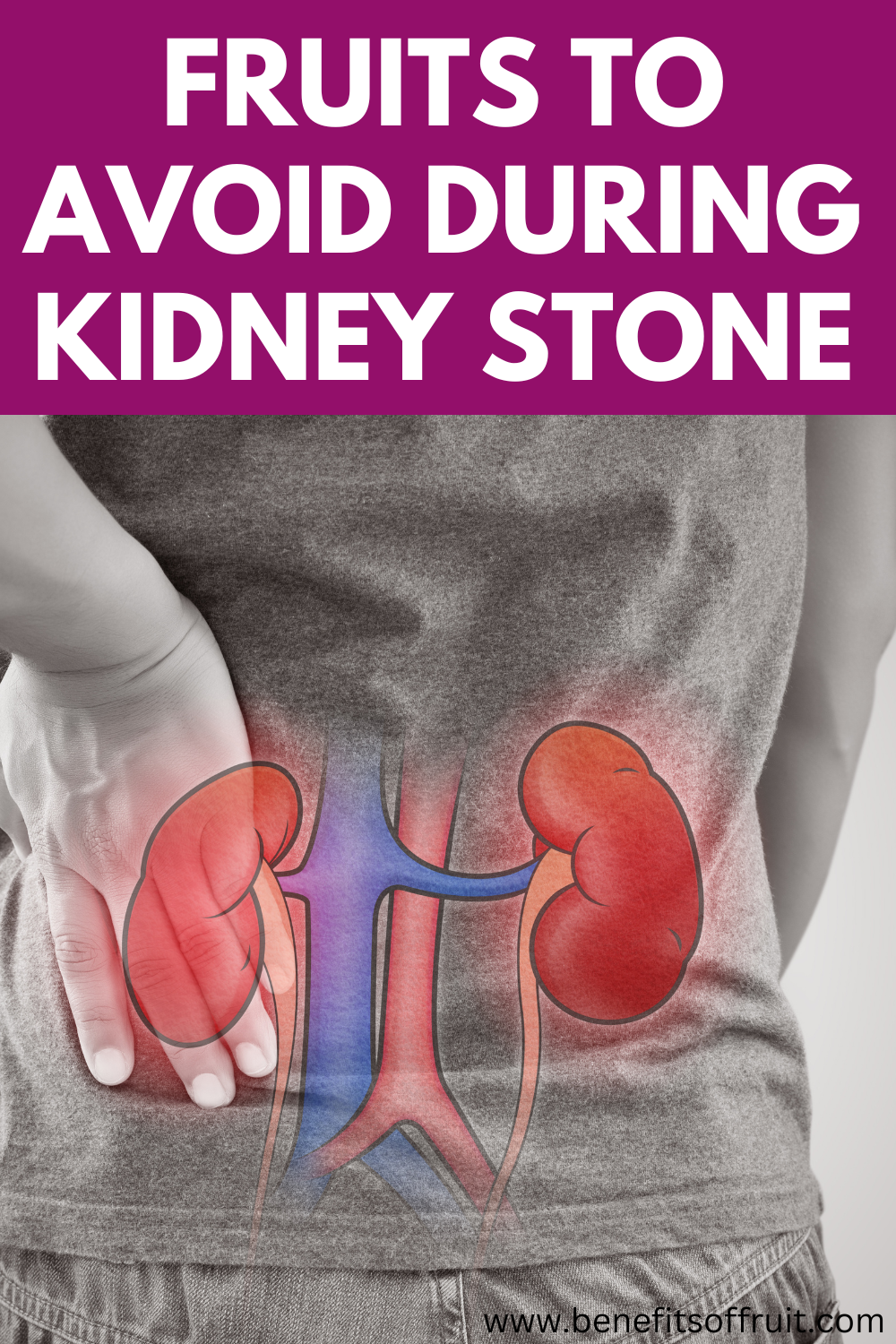Kidney stones, small hard deposits that form in the kidneys, are a painful condition affecting millions globally. These stones can cause significant discomfort and lead to complications if left untreated. Various factors, including genetics and dehydration, contribute to their formation, but diet plays a crucial role in influencing their development. While fruits are often hailed as healthy, not all fruits are beneficial for individuals prone to kidney stones. Understanding which fruits to avoid can help minimize the risk of stone formation and alleviate the discomfort associated with this condition.
Fruits To Avoid During Kidney Stone
Fruits are generally healthy due to their high vitamin, mineral, and fiber content. However, certain fruits can exacerbate kidney stone issues due to their high content of oxalates, acids, sugars, or purines. Individuals prone to calcium oxalate stones should be cautious of oxalate-rich fruits, while those with uric acid stones should be mindful of fruits high in purines.
Moreover, fruits high in sugar can increase urine oxalate levels, potentially leading to stone formation. Acidity in certain fruits can also alter the pH balance of urine, influencing the crystallization process.
Oxalate-Rich Fruits
Rhubarb: Known for its high oxalate content, rhubarb should be avoided by individuals with a history of calcium oxalate stones. Its oxalate content can significantly increase the risk of stone formation. While often used in desserts and jams, it is advisable to exclude it from the diet entirely.
Starfruit: This exotic fruit is packed with oxalates, which can be harmful to those with kidney issues. In severe cases, consumption of starfruit can lead to kidney failure due to its high oxalate concentration, especially in individuals with pre-existing kidney conditions.
Figs: Figs, while high in fiber and vitamins, contain considerable amounts of oxalates. Though not as high as rhubarb or starfruit, figs can still pose a risk, especially when consumed in large quantities.
High Sugar Content
Dates: These fruits are extremely high in natural sugars, making them a potential risk factor for kidney stones. High sugar intake can increase the oxalate level in urine, increasing the likelihood of stone formation.
Grapes: Although nutritious, excessive grape consumption can raise urine oxalate levels. Their high sugar content also contributes to this issue, potentially leading to an increased risk of stone formation.
Acidic Fruits
Grapefruit: With its high acid content, grapefruit can elevate urinary oxalate levels. This acidity can interfere with the body’s natural pH balance, encouraging kidney stone formation in susceptible individuals.
Cranberries: While cranberries are known for their benefits in preventing urinary tract infections, they contain high levels of oxalates and acidity. These characteristics can increase the risk of calcium oxalate stone formation.
Fruits High in Uric Acid Precursors
Bananas: Although a popular source of potassium, bananas contain moderate levels of purines, which can increase uric acid levels. For those with a history of uric acid stones, it’s essential to moderate banana intake.
Blackberries: These fruits are rich in oxalates and purines, which can pose a risk to individuals prone to kidney stones. Their high purine content can increase uric acid levels, and their oxalates can lead to calcium oxalate stone formation.
Understanding Kidney Stones
Kidney stones form when certain substances in the urine, such as calcium, oxalate, and uric acid, become highly concentrated and crystallize. This crystallization process eventually leads to the formation of stones. There are several types of kidney stones:
- Calcium Oxalate Stones: These are the most common, accounting for about 80% of cases. They form when calcium and oxalate levels in the urine are high.
- Uric Acid Stones: Caused by high levels of uric acid in the urine, often due to a diet high in purines (found in red meats, shellfish, etc.).
- Struvite Stones: Typically associated with urinary tract infections, leading to the formation of large stones.
- Cystine Stones: Result from a genetic disorder causing the kidneys to excrete too much of certain amino acids.
The diet plays a significant role in either promoting or preventing kidney stones. Oxalates, uric acid, calcium, and certain sugars can impact stone formation. For those predisposed to kidney stones, avoiding foods rich in these substances, particularly certain fruits, is crucial.
Other Dietary Considerations
Besides fruit consumption, managing overall diet is crucial for preventing kidney stones. Here are some additional tips:
- Stay Hydrated: Adequate fluid intake helps dilute substances in the urine, reducing the likelihood of stone formation.
- Moderate Oxalate-Rich Foods: Besides fruits, certain vegetables, nuts, and grains can also be high in oxalates. Moderation is key.
- Reduce Sodium Intake: High sodium levels can increase calcium excretion in the urine, leading to stone formation.
- Maintain a Balanced Diet: Incorporating a variety of fruits, vegetables, and lean proteins can help maintain the right nutrient balance.
Conclusion
While fruits are generally considered healthy, individuals prone to kidney stones should be cautious about which ones they consume. Rhubarb, starfruit, figs, dates, grapes, grapefruit, cranberries, bananas, and blackberries can all pose risks due to their high levels of oxalates, purines, sugars, or acids. Understanding and avoiding these fruits, while managing overall diet and staying hydrated, can significantly reduce the risk of kidney stones and their associated discomfort.
